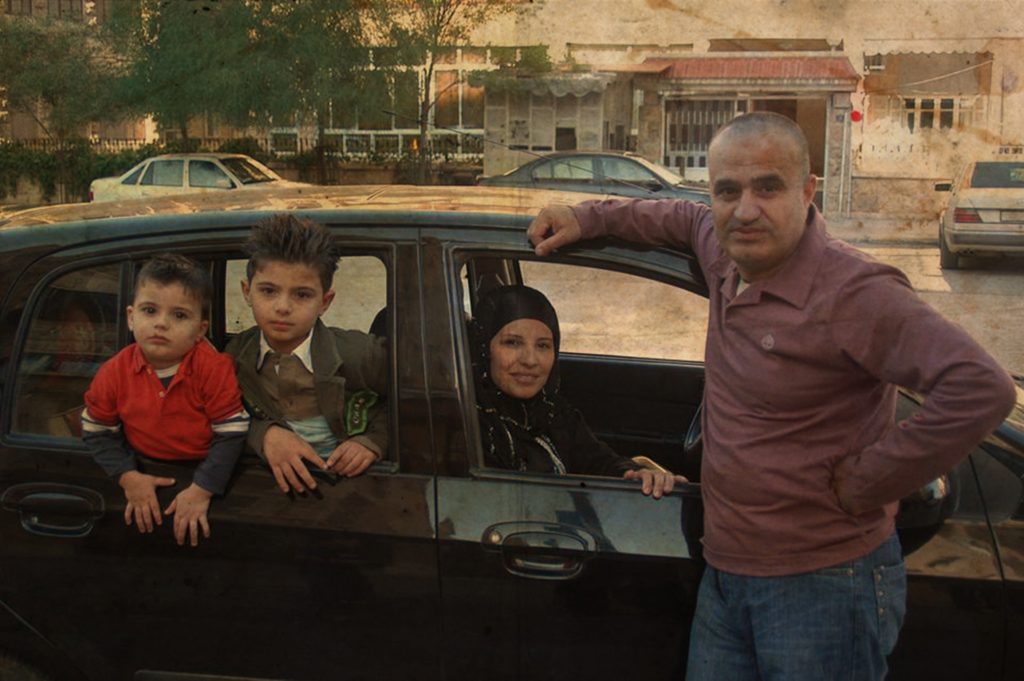Mira Jargil is known for the award-winning festival hit “The Time We Have,” the feature documentary “Dreaming of a Family,” and the series “Till Death Do Us Part.” The former two won best documentary at the prestigious Danish Film Awards. Jargil owns the Danish production company Moving Documentary together with director Christian Sønderby Jepsen.
“Reunited” will screen in the New York edition of the 2020 Human Rights Watch Film Festival. This year’s fest has gone digital due to COVID-19, and runs June 11- 20. You can find more information on the fest’s website.
W&H: Describe the film for us in your own words.
MJ: “Reunited” is a story about a family’s struggle for survival and justice. It’s about love, loss, despair, desperation, and longing for just being together.
For me, it has also been a study of how you uphold your strength in an inhumane situation.
W&H: What drew you to this story?
MJ: As a director, I’m interested in changes and decisive moments in people’s lives, and characters with strong wills caught in difficult choices and challenging life situations.
With “Reunited,” I want to provide insight into the consequences of the policies in Europe that create stereotypes and divide human beings. I shed light on a family’s destiny in order to provide the debate with a human perspective. My ambition with “Reunited” is to show the human face behind the journal number.
W&H: What do you want people to think about after they watch the film?
MJ: The family is an example of how life can change in a heartbeat. The bank where Rana and Mukhles had their life savings was bombed, and the money confiscated. Their house and Rana’s pediatric clinic were blown to bits — all before they left Syria. It taught them that everything materialistic is nothing compared to the missing of your loved ones.
It is very brutal to divide families. Rana is a so-called “convention refugee” and therefore not subject to Denmark’s three-year rule in relation to seeking family reunification — yet it took several years for her to be reunited with her children. It is very difficult to understand why it’s taken so long.
The debate on refugees is very much about systems, numbers, and how many we have to take in and how many we have to reject. We must not forget about the consequences for the innocent people suffering from it.
W&H: What was the biggest challenge in making the film?
MJ: The film has been really time consuming. A lot of footage in Arabic had to be translated, and unpredictable events made filming difficult to plan — I had to be available 24/7.
It is always a challenge in the editing process to create a good balance between facts and feelings.
W&H: How did you get your film funded? Share some insights into how you got the film made.
MJ: The film is financed by The Danish Film Institute, The Swedish Film Institute, DR TV and other TV pre-sales, but I also had my own large investment, as the film otherwise could not be done.
W&H: What inspired you to become a filmmaker?
MJ: I grew up in a movie environment. My dad is a movie director, so there has always been a naturalness to filming.
But what drives me is a desire to explore what I find difficult to understand — and for me, filming is a way to create order in the chaos of life.
W&H: What’s the best and worst advice you’ve received?
MJ: Best advice: If something is worth doing, then it is worth doing well.
Worst advice: Not to follow my gut feeling.
W&H: What advice do you have for other female directors?
MJ: My advice to female directors is the same as it is to male directors: only make movies if you are really passionate about them. And if you are truly passionate, then keep fighting for it.
W&H: Name your favorite woman-directed film and why.
MJ: I really like “Stories We Tell” by Sarah Polley. It is dramatic, tender, personal, complex, humorous, and full of surprises. Very inspiring filmmaking.
W&H: How are you adjusting to life during the COVID-19 pandemic? Are you keeping creative, and if so, how?
MJ: It’s challenging times, but nothing stops my need to create documentaries, and I’m in the process of a new film. I spend a lot of time in the editing room, and experimenting with new ways to tell a story. Working with constraints can be a good creative challenge.







